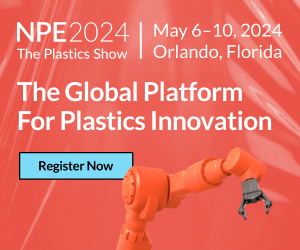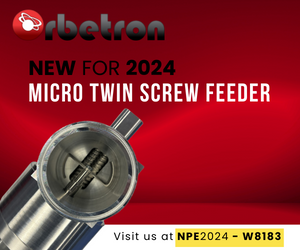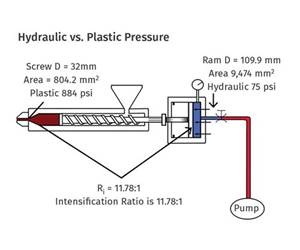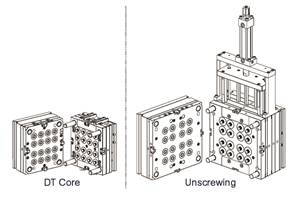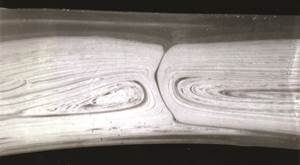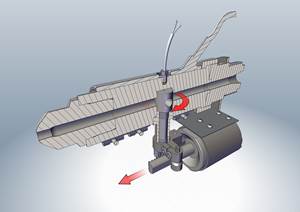Who’s Doing Research to Advance the Plastics Industry?
Machinery suppliers are taking the lead in plastics R&D. Engel offers one example.
It has always been a shared burden among the different sectors of raw-materials and equipment suppliers and processors—and it still is, though I see a changing profile of who’s doing what.
Materials companies, which once led the way in applications and process development across the board, seem to have narrowed their focus to their own materials developments, except perhaps in automotive and some areas of packaging, as well as the newly hot topic of recycling or the “Circular Economy.” A handful of large processors and end-users are still a force in plastics R&D, but mainly in automotive and packaging.
What’s apparent to me is the enhanced role today of the machinery and tooling companies. They are enabling the growth of plastics by making huge advances in productivity, sustainability and cost savings through energy efficiency, multifunctional tooling (e.g., in-mold assembly), in-machine quality assurance, and self-correcting processes. They are opening new horizons with transformational technologies like collaborative automation and “the fourth industrial revolution”—Industry 4.0. And companies like Erema are taking the lead in making the Circular Economy more than an aspirational slogan.
This was brought home to me during a recent trip to Austria, part of which was spent visiting the Schwertburg headquarters of Engel. I was startled to learn that this company employs 230 people in R&D, an extraordinary figure for a machinery company. Engel had just opened a 1700-m2 Technology Center—an airy, high-ceilinged space with an entire long wall of floor-to-ceiling windows. I was given a tour by Dr. Georg Steinbichler, sr. v.p. of R&D Technology. The tech center has room for 20 injection machines, though it currently houses 11 from 50 to 500 metric tons. Their capabilities include two-component molding, in-mold decorating and microcellular foaming. The facility also has an enclosed cleanroom development area with one machine, as well as conference rooms and a customer training center with machines equipped with several generations of Engel controls, from CC 100 and 200 to the current CC 300.
“We have substantially boosted the capacity for customer trials and joint development work,” says Dr. Stefan Engleder, CEO of the Engel Group. “Our customers’ need for consulting services is continuing to grow due to the new requirements of the digital revolution.”
In particular, the new tech center utilizes the full range of Engel’s Industry 4.0 technologies, which it calls inject 4.0. “We ourselves are the first users of all newly developed injection 4.0 technologies,” says Engleder. The new tech center is thus “able to demonstrate in a particularly vivid and tangible way how this great potential can be leveraged.”
All the machines in the tech center utilize Engel’s intelligent quality-assistance software packages—iQ weight control, iQ clamp control, iQ flow control, and the two brand-new products being introduced at the K 2019 show, iQ melt control and iQ process observer (see our September K Show Preview for details).
What’s more, the tech center uses Engel’s e-connect customer portal and TIG authentig MES cloud solution to connect the technology centers at all Engel’s plants and subsidiaries worldwide. “From Schwertburg, we can monitor and remotely maintain the production cells in Shanghai, Mexico or Hanover, for example,” notes Engleder.
He adds that one of the forward-looking projects focuses on establishing a knowledge database that pools Engel’s expertise and experience, enabling it to solve the challenges of injection molding faster than ever before.
And that’s not all that Engel is working on. It is one of 24 companies, primarily from Austria and Germany (others include Erema, Borealis, Covestro, Motan Colortronic and Leistritz), participating in the LIT Factory at the Linz Institute of Technology of the Johannes Kepler University in Linz, Austria. Funded 50:50 by industry and government, the 1500 m2 LIT Factory is intended to be a pilot plant for development and testing of “smart” (digital) technologies for plastics injection, extrusion and recycling. The project aims to explore the potential for comprehensive digitization—Industry 4.0—as an organizational design concept along the entire value chain from materials and product development to moldmaking, processing and recycling. Aspects to be explored include IoT networking of machines, plant-engineering components, sensors and people using the OPC UA standard; using sensor data and edge computing to create a real-time virtual image (“digital twin”) of the manufacturing world; neural networks and self-learning machines; process simulation; and technical-assistance systems for fast problem solving.
The LIT Factory currently has a staff of 20 and two Engel presses and a Motan drying, conveying, feeding and blending system. A Leistritz twin-screw extruder is a planned addition. An initial focus will be the complete product lifecycle of continuous-fiber thermoplastic composites (an area of Engel expertise). Unidirectional tapes will be made with the Leistritz extruder in the Smart Extrusion Hall, supporting research on optimizing quality and energy efficiency and inline inspection. A production line with several robots will use these tapes to produce lightweight overmolded components in the Smart Injection Hall. Goals include designing and producing composites tailor made for automotive and aircraft applications. Finally, the Smart Recycling Hall will develop a new type of plant for recovering valuable raw materials from composites at the end of their life cycle.
Related Content
Best Methods of Molding Undercuts
Producing plastics parts with undercuts presents distinct challenges for molders.
Read MoreWhat to Do About Weak Weld Lines
Weld or knit lines are perhaps the most common and difficult injection molding defect to eliminate.
Read MoreKnow Your Options in Injection Machine Nozzles
Improvements in nozzle design in recent years overcome some of the limitations of previous filter, mixing, and shut-off nozzles.
Read MoreRead Next
Advanced Recycling: Beyond Pyrolysis
Consumer-product brand owners increasingly see advanced chemical recycling as a necessary complement to mechanical recycling if they are to meet ambitious goals for a circular economy in the next decade. Dozens of technology providers are developing new technologies to overcome the limitations of existing pyrolysis methods and to commercialize various alternative approaches to chemical recycling of plastics.
Read MoreLead the Conversation, Change the Conversation
Coverage of single-use plastics can be both misleading and demoralizing. Here are 10 tips for changing the perception of the plastics industry at your company and in your community.
Read MorePeople 4.0 – How to Get Buy-In from Your Staff for Industry 4.0 Systems
Implementing a production monitoring system as the foundation of a ‘smart factory’ is about integrating people with new technology as much as it is about integrating machines and computers. Here are tips from a company that has gone through the process.
Read More








